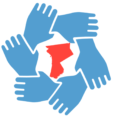
A guide for preparing, practicing, and parenting with confidence
Becoming a parent means stepping into a world of tiny socks, midnight feedings, and a Google search history full of “is baby poop supposed to be green?” Whether you’re nesting before your baby arrives or adjusting during those early weeks, preparing the right tools—and knowing how to use them—can ease the stress and help you feel empowered (Zero to Three, 2023).
Baby Care Essentials Checklist
Every family is unique, but the following items are widely recommended by pediatricians and parenting experts (HealthyChildren.org, 2023):
Feeding:
- Bottles (4–8), slow-flow nipples
- Formula or breast pump (if needed)
- Burp cloths, bibs, and nursing pads
- Nipple cream and milk storage bags
Sleep:
- Crib or bassinet with a firm, flat mattress
- Fitted crib sheets (2–3)
- Sleep sacks or swaddles (no blankets, pillows, or bumpers)
Diapering & Hygiene:
- Diapers and wipes (unscented)
- Diaper cream (zinc oxide or petroleum-based)
- Baby-safe shampoo and soap
- Nail clippers and soft washcloths
Health & Safety:
- Digital thermometer
- Nasal bulb or aspirator
- Infant Tylenol (use only if recommended by your pediatrician)
- Rear-facing car seat (installed properly) (NHTSA, 2023)
Basic Infant Care Skills to Practice
Practicing ahead of time can make the transition smoother. You can try these techniques using a doll, stuffed animal, or in a newborn care class (Mayo Clinic, 2023).
1. Diapering:
- Wipe front to back
- Ensure a snug but not tight fit
2. Feeding & Burping:
- Watch for hunger cues
- Burp baby gently between and after feeds
3. Swaddling:
- Secure the arms but leave room for hip movement
- Discontinue swaddling once baby can roll over (~8 weeks) (AAP, 2023)
4. Bathing:
- Sponge baths until umbilical stump falls off
- Always keep one hand on the baby
5. Safe Sleep:
- Always place baby on their back to sleep
- Use a crib or bassinet without soft items (CDC, 2022)
Basic Infant First Aid Every Parent Should Know
Learning these skills before an emergency happens is one of the most empowering things you can do.
Infant CPR (0–12 months):
- Place baby on a firm surface
- Use two fingers for compressions (1.5 inches deep, 100–120 compressions/min)
- Give 2 gentle rescue breaths after every 30 compressions
(Red Cross, 2023)
Choking Response:
- 5 back blows (using the heel of your hand), followed by 5 chest thrusts
- If unresponsive, call 911 and begin CPR (Red Cross, 2023)
Fever Care:
- Any rectal temperature above 100.4°F (38°C) in infants under 3 months is a medical emergency (AAP, 2023)
Congestion Relief:
- Use a nasal aspirator with saline drops
- Run a cool-mist humidifier in the room
Wound & Rash Care:
- Gently clean minor cuts with soap and water
- Use barrier creams for diaper rash
Final Thought
You don’t need to be perfect. You just need to be present. By gathering a few key items, practicing hands-on skills, and learning basic first aid, you’re taking care of your baby and building your own confidence.
You are your baby’s home—and that is more than enough.
Westchester County Resources
1. 914Cares – Baby Bank & Diaper Bank
Provides a six-month supply of infant essentials, including strollers, car seats, pack-n-plays, first aid kits, towels, diapers, wipes, diaper cream, shampoo, formula, and clothing.
- Website: 914cares.org/all-things-baby
- Contact: [email protected]914 Cares+1914 Cares+1
2. Child Care Council of Westchester
Offers parent education, support groups, and resources on child care, health, and safety, including information on CPR and first aid classes.
- Website: childcarewestchester.org/services/parents/parent-education
- Phone: (914) 761-3456
- Email: [email protected]childcarewestchester.orgYonkers Roundup+1childcarewestchester.org+1
3. Junior League of Central Westchester – Diaper Bank
Provides diapers to families in the community experiencing diaper insecurity.
4. CPR Certification Westchester
Offers American Heart Association BLS CPR and AED classes with infant CPR training for parents and caregivers.
- Website: cprcertificationwestchester.com/infant-cpr-classes
- Phone: (914) 444-1941Heart Shield CPR+4CPR Certification Westchester+4cpred.com+4
Putnam County Resources
1. Putnam County Department of Health – New Parent Support Groups
Hosts support groups for new parents, covering topics like breastfeeding and safe sleep practices.
- Website: putnamcountyny.gov/health/newborns
- Phone: (845) 808-1390
2. Healthy Families Putnam – Maternal Infant Services Network
Provides home-based services to support expectant families and new parents, focusing on parent-child bonding and healthy development.
- Website: misn-ny.org/healthy-families-putnam
3. CPRed – CPR and First Aid Training
Offers pediatric first aid and CPR classes for new parents, daycare providers, and community members.
- Website: cpred.com/Putnam_County_CPR_Instructors.html
- Phone: (914) 497-8998
- Email: [email protected]ecetp.pdp.albany.edu+3cpred.com+3cpred.com+3
Bibliography
American Academy of Pediatrics. (2023). Safe sleep practices. HealthyChildren.org. https://www.healthychildren.org
Centers for Disease Control and Prevention. (2022). Sudden Infant Death Syndrome (SIDS). https://www.cdc.gov/sids/index.htm
Mayo Clinic. (2023). Newborn care basics. https://www.mayoclinic.org
National Highway Traffic Safety Administration. (2023). Car seat recommendations for children. https://www.nhtsa.gov
Red Cross. (2023). Infant and child CPR training. https://www.redcross.org/take-a-class/cpr/performing-cpr/child-baby-cpr
Zero to Three. (2023). Essential baby care skills. https://www.zerotothree.org
Legal Disclaimer: The information provided by our nonprofit is for informational purposes only and not a substitute for professional medical advice, diagnosis, or treatment. Always consult a qualified healthcare provider for medical concerns. We make no guarantees about the accuracy or completeness of the information and are not liable for any decisions made based on it. If you have a medical emergency, call 911 or seek immediate medical care.


